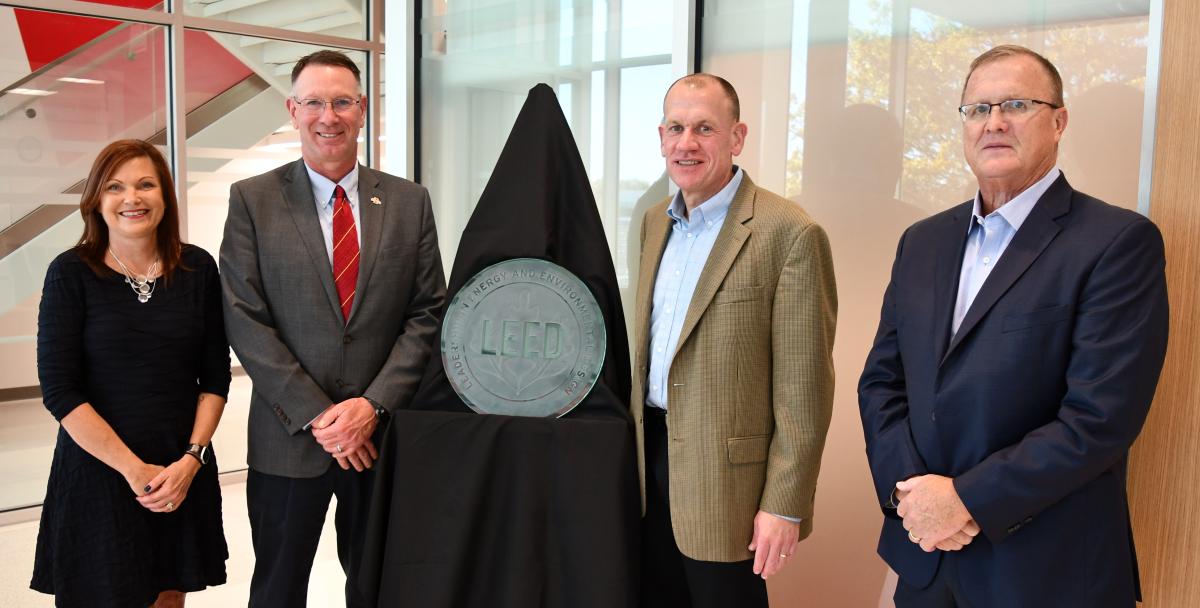
Pictured, from the left, Sheri Brezinka, regional director of the U.S. Green Building Council; Dr. Dan Grooms, the Dr. Stephen G. Juelsgaard Dean of Veterinary Medicine; Dr. Rodger Main, director of the Veterinary Diagnostic Laboratory; and Dr. Pat Halbur, executive director of the Veterinary Diagnostic Laboratory and chair of the Department of Veterinary Diagnostic and Production Animal Medicine.
October 23, 2024
The Veterinary Diagnostic Laboratory in the College of Veterinary of Veterinary Medicine has been recognized by the U.S. Green Building Council (USGBC) with its LEED Silver Certification.
The green building certification program is the globally recognized standard for the design, construction and operation of high-performance green buildings and neighborhoods.
“The LEED Silver Certification is a significant achievement,” said Dr. Dan Grooms, the Stephen G. Juelsgaard Dean of Veterinary Medicine. “The VDL will save over 30 percent in energy costs from the energy-efficient practices in the HVAC and building envelope design, among other energy-saving features.”
The building will also reduce water usage by 39% with no added project cost.
"This LEED Silver Certification is so much more than a plaque on the wall," said Sheri Brezinka, regional director of the U.S. Green Building Council. "It is a symbol that confirms the sustainability plans and goals that are so important to the university have been reviewed by a third party and everything that you desired have come through in the design and construction of this building."
Invision Architecture created the initial specifications for the building and Strange, Inc., was the lead design firm. The building was constructed by the Weitz Company and various subcontractors.
The LEED Silver Certification was granted to Phase 1 of the new VDL. That $75 million project was completed and the facility opened in March 2024. Client services, receiving/accessioning, sample processing, necropsy, pathology, histopathology and bacteriology are in Phase 1.
Phase 2 of the VDL project is currently under construction with an anticipated completion date in the fall of 2026. This $66.5 million project will ultimately house molecular diagnostics, genetic sequencing, virology, serology, analytical chemistry/toxicology, diagnostic research and development, BSL-3 (high biosecurity diagnostics), information technology, and the VDL administrative staff.
The Veterinary Diagnostic Laboratory plays a significant role in addressing both animal and human diseases by seeing more than 125,000 cases and conducted 1.6 million tests annually.
